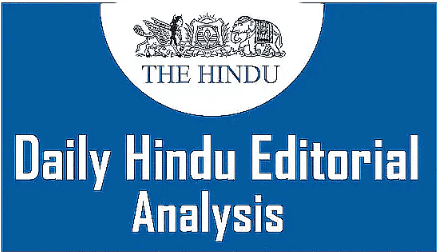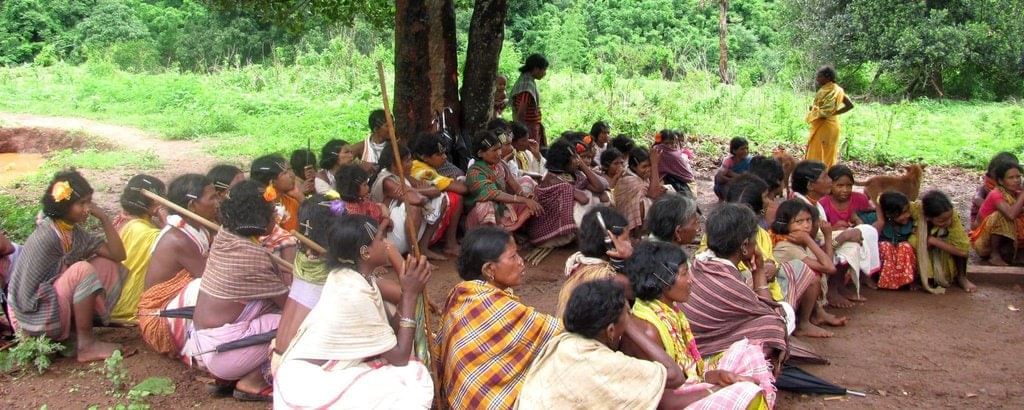UPSC Exam > UPSC Notes > Current Affairs & Hindu Analysis: Daily, Weekly & Monthly > The Hindu Editorial Analysis- 17th August 2024
The Hindu Editorial Analysis- 17th August 2024 | Current Affairs & Hindu Analysis: Daily, Weekly & Monthly - UPSC PDF Download

The Essence of India’s Inflation Problem
Why in News?
The article discusses the implications of the Economic Survey’s suggestion to exclude food prices from the RBI’s inflation target, arguing that this approach overlooks the significant impact of food inflation on the Indian population.
- It advocates for supply-side measures in agriculture to address rising inflation effectively.
Economic Survey’s Suggestion on Inflation Targeting
- The Economic Survey before the Union Budget suggested excluding food prices from the RBI's inflation target.
- This means moving from targeting 'headline inflation' to 'core inflation,' which doesn't include food and fuel costs.
- To understand this change, we need to look at recent inflation trends in India and the current inflation control policies.
Food Price Inflation and Its Impact
- Food price inflation in India has been very high historically, with a nearly 10% increase in June.
- This has been happening since 2019, before the COVID-19 pandemic and the Ukraine conflict, showing factors within the country affecting this.
- Since food makes up a significant portion of the consumer price index, overall inflation has also risen.
Current Inflation Control Policy
- Since 2016, the RBI has been tasked with managing inflation by adjusting the interest rate, known as 'inflation targeting'.
- Despite this, the RBI has not achieved the desired 4% inflation rate each year over the past five years, much like the Bank of England and the U.S. Federal Reserve.
- Changes in global food prices have had a significant impact on inflation trends in these countries.
Justification and Effectiveness of Targeting Core Inflation
- The proposal to exclude food prices from the inflation target is questioned, given that food makes up about 50% of household spending in India, which is high compared to other countries.
- Not considering changes in food prices in inflation targeting would mean ignoring the most important factor that affects a large part of the population.
- The idea that food price fluctuations are 'temporary' is not accurate for India, as food price inflation has been consistently positive for the past 13 years.
RBI’s Ability to Control Core Inflation
- Targeting core inflation may not help the RBI control inflation effectively.
- Core inflation has often exceeded the 4% target. Increasing the RBI's repo rate doesn't always reduce core inflation; it might actually lead to higher inflation as companies adjust prices to protect their profits.
- Rising food prices impact core inflation by driving up wages, which in turn affect overall production expenses.
Supply-Side Solutions and Agricultural Focus
- The main problem is the increasing cost of food, which is at the core of India's inflation.
- If food prices are not controlled while excluding them from the inflation target, India could face higher inflation.
- To solve this, actions need to be taken on the supply side to boost agricultural production, ensuring that the supply matches the demand at steady prices as the population and economy expand.
- The suggestion in the Economic Survey to provide money directly to households is not enough. This is because if food prices keep going up, it will put a strain on the budget, leaving less for public services.
Conclusion
- Targeting core inflation by excluding food prices is not a workable solution.
- A thorough strategy for farming output and regulating the cost of all items is crucial for upholding living standards and attaining consistent inflation in India.
Ensuring Social Justice in the Bureaucracy
Why in News?
The problem is about the absence of representation of Scheduled Caste (SC) and Scheduled Tribe (ST) officials in the making of the 2024 Budget, as pointed out by Rahul Gandhi in Parliament.
- The discussion highlights ongoing worries regarding the limited presence of disadvantaged groups in high-ranking government positions and the wider effects on fairness in society.

Introduction
- In his speech to parliament on July 29, 2024, Rahul Gandhi expressed worries about the absence of representation from SC/ST communities in the budget planning for 2024.
- He highlighted how marginalized groups are not well-represented in important government positions.
- The Finance Minister of the Union responded by pointing out that there were similar exclusions in organizations linked to Gandhi, shifting the focus away from the significant issue of underrepresentation in high-ranking government roles to a more political discussion.
Continuing Upper Caste Domination in Civil Services
- The main reason for the lack of SC/ST officers participating in the Budget-making process is the continued dominance of upper caste individuals in high-ranking positions within the civil service.
- In December 2022, Minister of State Jitendra Singh presented information indicating that out of 322 individuals serving as Joint Secretaries and Secretaries, only 16 were SC, 13 were ST, and 39 were OBC, while 254 belonged to the General category.
- This data reveals a significant disparity in the representation of officers from reserved categories in key decision-making roles, underscoring the absence of reservation policies for promotions in Class A services.
Challenges Due to Age Factor and Retirement Rules
- SC/ST and PwBD candidates often begin their civil service careers later than general category candidates.
- The current rules unintentionally benefit those who start early, regardless of their performance, creating a disadvantage for individuals from reserved categories.
- Due to the existing retirement age, many SC/ST and PwBD officers retire at lower or mid-level positions, missing out on higher roles despite their qualifications and capabilities.
Proposal for Fixed Tenure System
- There is a necessity for significant changes in retirement regulations to tackle this problem: a set duration of 35 years for all government employees, regardless of when they start, guaranteeing that those who join later have the same chances to achieve top positions.
- If it's seen as unsuitable to work into the seventies, the age limits for joining could be modified to ensure retirement at approximately 67 years old.
- Regular health check-ups after turning 62 could be introduced to confirm that government employees stay healthy enough to continue serving.
Call for a Committee to Address the Issue
- To achieve a Developed India with fairness for everyone, it's vital to tackle the lack of SC/ST and OBC representatives in high-ranking civil service positions.
- Initially, it's suggested that the Opposition Leader push for a diverse panel comprising SC/ST, OBC, and PwBD members to explore the workability of a fixed job term system.
- This panel must approach the matter with an unbiased approach, striving for equal chances in civil services.
The document The Hindu Editorial Analysis- 17th August 2024 | Current Affairs & Hindu Analysis: Daily, Weekly & Monthly - UPSC is a part of the UPSC Course Current Affairs & Hindu Analysis: Daily, Weekly & Monthly.
All you need of UPSC at this link: UPSC
|
38 videos|5275 docs|1115 tests
|
FAQs on The Hindu Editorial Analysis- 17th August 2024 - Current Affairs & Hindu Analysis: Daily, Weekly & Monthly - UPSC
| 1. Question: What are the main factors contributing to India's inflation problem? |  |
Answer: The main factors contributing to India's inflation problem include supply chain disruptions, high fuel prices, increase in global commodity prices, and excess liquidity in the economy.
| 2. Question: How does inflation impact the average Indian citizen? |  |
Answer: Inflation impacts the average Indian citizen by reducing their purchasing power, making goods and services more expensive, and eroding the value of their savings and investments.
| 3. Question: How can the government address India's inflation problem? |  |
Answer: The government can address India's inflation problem by implementing measures such as controlling money supply, improving supply chain efficiency, reducing dependence on imported goods, and maintaining a stable exchange rate.
| 4. Question: What role does the Reserve Bank of India play in managing inflation? |  |
Answer: The Reserve Bank of India plays a crucial role in managing inflation by using monetary policy tools such as interest rates to control money supply, stabilize prices, and ensure economic stability.
| 5. Question: What are the potential long-term consequences of unchecked inflation in India? |  |
Answer: Unchecked inflation in India can lead to economic instability, lower standards of living, reduced investments, and hindered economic growth in the long term. It can also impact the country's competitiveness globally.
Related Searches





















